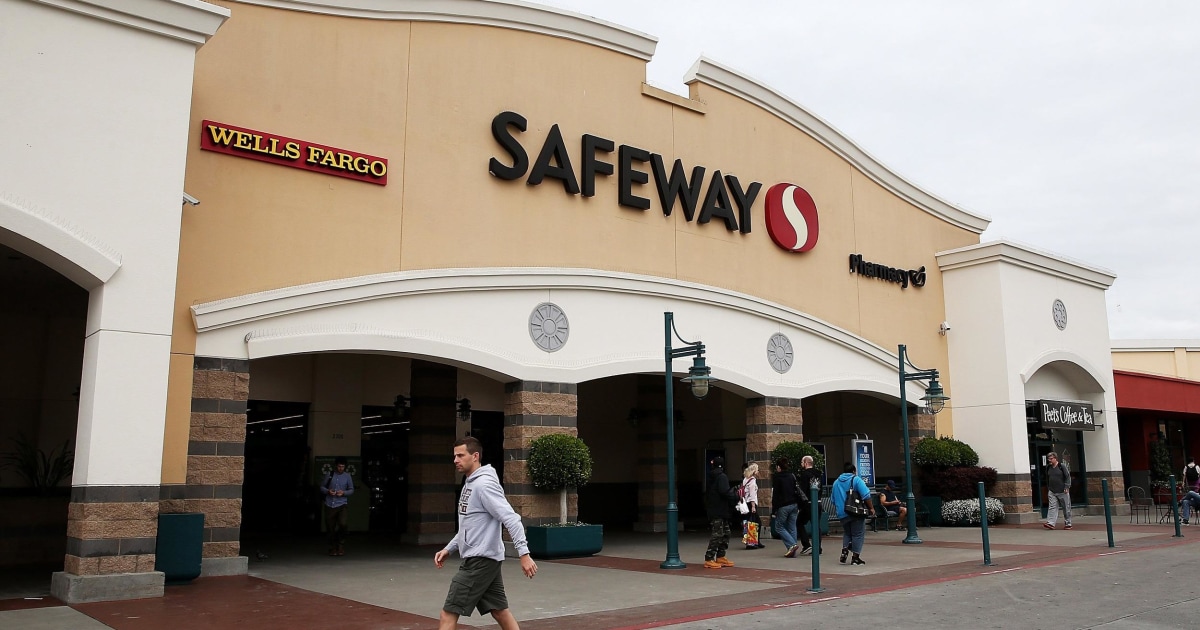https://www.cnn.com/2022/10/14/business/kroger-albertsons-merger

 www.nbcchicago.com
www.nbcchicago.com
Here is more if the deal is approved.

 abc7.com
abc7.com
Note in Southern California Kroger owns Ralph's Supermarket and Albertsons owns Vons. In Northern California Albertsons own Safeway. Some of the pressure to merge is directed at online retail. These two companies have to respond to increasing competition by Amazon, Walmart and others that sparked them to merge.

Kroger and Albertsons, Owners of Grocery Chains Mariano's and Jewel, Have Agreed to Merge
According to CNBC, the deal is valued at $24.6 billion.
 www.nbcchicago.com
www.nbcchicago.com
Two of the nation’s largest grocers have agreed to merge in a deal that would help them better compete with Walmart, Amazon and other major companies that have stepped into the grocery business.
Kroger on Friday bid $20 billion for Albertsons Companies Inc., or $34.10 per share. Kroger will also assume $4.7 billion of Albertsons’ debt.
Albertsons shares had closed Thursday at $28.63 after surging on reports that a deal was imminent.
Here is more if the deal is approved.
Both companies' boards unanimously approved the agreement, which will need regulatory approval.
Kroger is the second largest grocer by market share in the United States, behind Walmart, and Albertsons is fourth, after Costco. Together, Kroger and Albertsons would be a closer second to Walmart.
Kroger, based in Cincinnati, Ohio, operates 2,800 stores in 35 states, including brands like Ralphs, Smith’s and Harris Teeter.

Albertsons and Kroger, 2 of the largest supermarkets in America, announce $24.6 billion merger
Kroger announced that it plans to buy Albertsons in a nearly $25 billion deal that could change the US retail industry and impact how millions of customers buy their groceries.
Note in Southern California Kroger owns Ralph's Supermarket and Albertsons owns Vons. In Northern California Albertsons own Safeway. Some of the pressure to merge is directed at online retail. These two companies have to respond to increasing competition by Amazon, Walmart and others that sparked them to merge.
Kroger will buy Albertsons for $34.10 a share - a roughly 30% premium above the grocery chain's average share price over the course of the past month. Shares of Kroger slid 2% in pre-market trading, while Albertsons soared more than 11%.
The two companies operate dozens of grocery chains. Kroger operates Ralphs, Harris Teeter, Dillons, Fred Meyer and others, while Albertsons owns Safeway and Vons.The companies said they will spin off nearly 400 stores to form a new rival in an effort to gain antitrust clearance.
Last edited:

